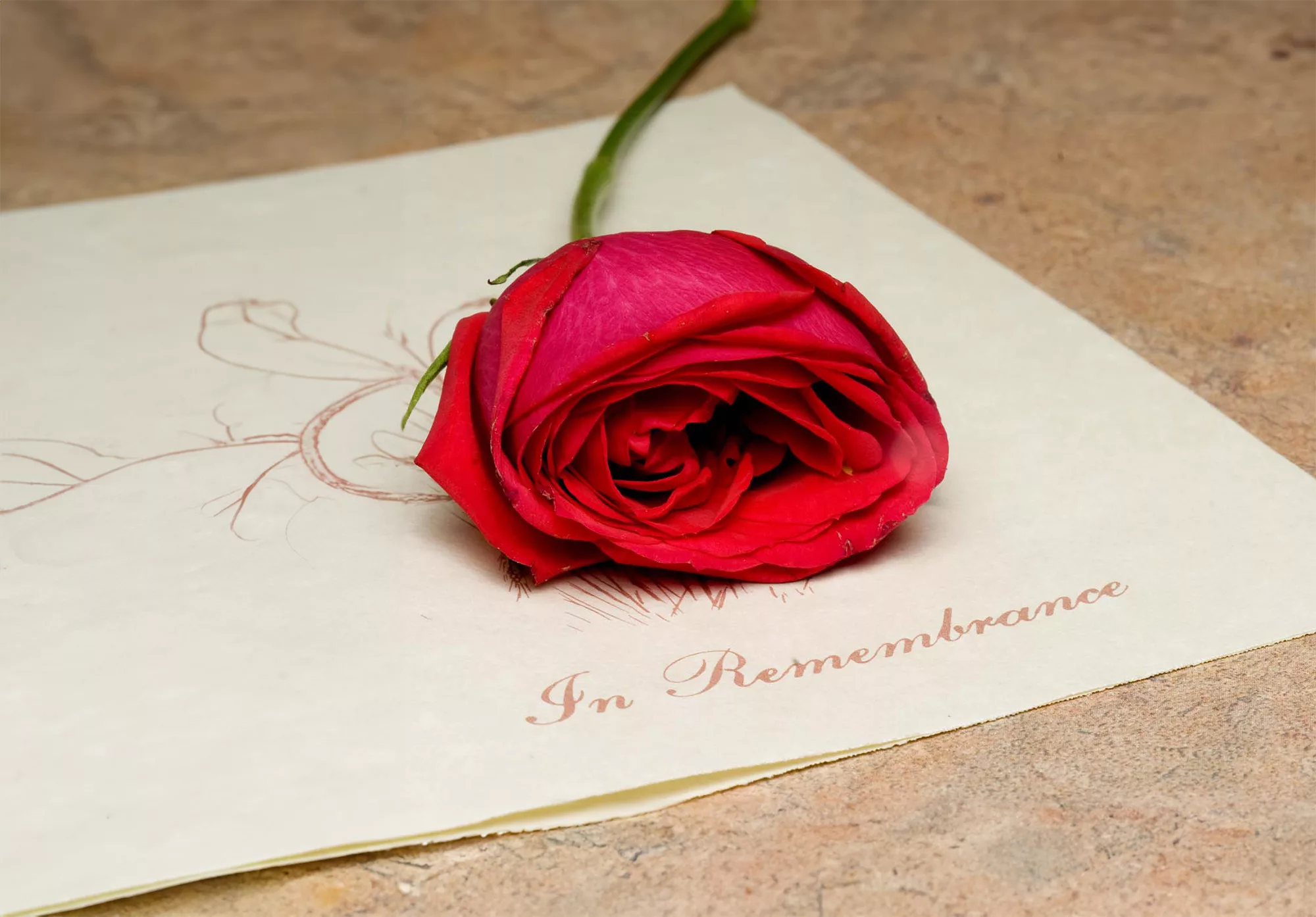Bereavement support
Grief is a natural reaction to loss and affects everyone differently. AB Walker understands this and offers aftercare support for those experiencing the loss of a loved one.
This website will offer limited functionality in this browser. We only support the recent versions of major browsers like Chrome, Firefox, Safari, and Edge.
Our next Link Bereavement Course starts on Thursday 26th February. Find out more here.
Registering the death of a loved one is a necessary step, and there are some important details you’ll need to note. Here we cover the essential documentation and information, and provide some helpful links to make the process a little bit easier.


Before you can register the death, you need to go through some initial steps so that the death is officially confirmed and normally a Medical Certificate of Cause of Death issued. If you haven’t got that far yet, we’ve created a step-by-step guide to help you know exactly what you need to do when someone dies.
The issuing of the Medical Certificate of Cause of Death involves a new Medical Examiner service. This process is outline below and we can guide you through how it works.
The Medical Examiner is an independent senior Doctor. Their role is to review the medical records, speak to the treating Doctor and together agree on the wording for the Medical Certificate of Cause of Death.
Within a few days of the death, the Medical Examiner’s office will contact you by phone. During the call, they will explain to you what the cause of death will be recorded as, or if a Coroner referral is required. You will have the opportunity to raise any questions about the cause of death or the care received.
Provided a Coroner referral is not required, the Medical Certificate of Cause of Death will be sent to the register office local to the place of death.
A Medical Examiner Officer (if the death occurred at home or in a care home) or the bereavement team (for a death in hospital) will then call you to let you know the Medical Certificate of Cause of Death has been sent. You can now make an appointment with the Registrar.
The next step is to register the death. Contact your local register office and make an appointment. You usually need to register a person’s death within five days. The appointment with the registrar will take about 30 minutes.
Registration could be delayed if the death is referred to the coroner, but you can still start to arrange the funeral during this time.
A relative, partner or personal representative of the person who has died will usually register the death.
The death can also be registered by:
There are a number of documents and certain information that you will need to provide to the registrar:
Documents
Information
You will need to use a register’s office in the area of the person who died. Find the local register office here. You can use another office if you prefer but it may take longer to get the necessary documents and this could delay the funeral arrangements.
The appointment with the registrar will take about 30 minutes.
They will also explain the Government’s ‘Tell Us Once Service’ to you. This service allows you to report a death to most government offices in one go.
You may wish to purchase extra copies of the death certificate to satisfy bank, insurance and pension requirements.

Yes, all deaths in the UK need to registered.
A relative, partner or personal representative of the person who has died will usually register the death.
The death can also be registered by:
It is free to register a death. There is a charge to receive a copy of the death certificate. The current cost is £12.50 per copy.

AB Walker works with you to create the right funeral for your loved one. Whether you choose a traditional or modern service, one without ceremony or a bespoke, specialist service, your needs are met with care, compassion, and professionalism.
We know this very likely to be a difficult time for you, so we’ve found different ways to support you through it.
Email or call us with your questions, queries and requirements. For urgent assistance, call us on 0118 957 3650 24 hours a day, seven days a week.